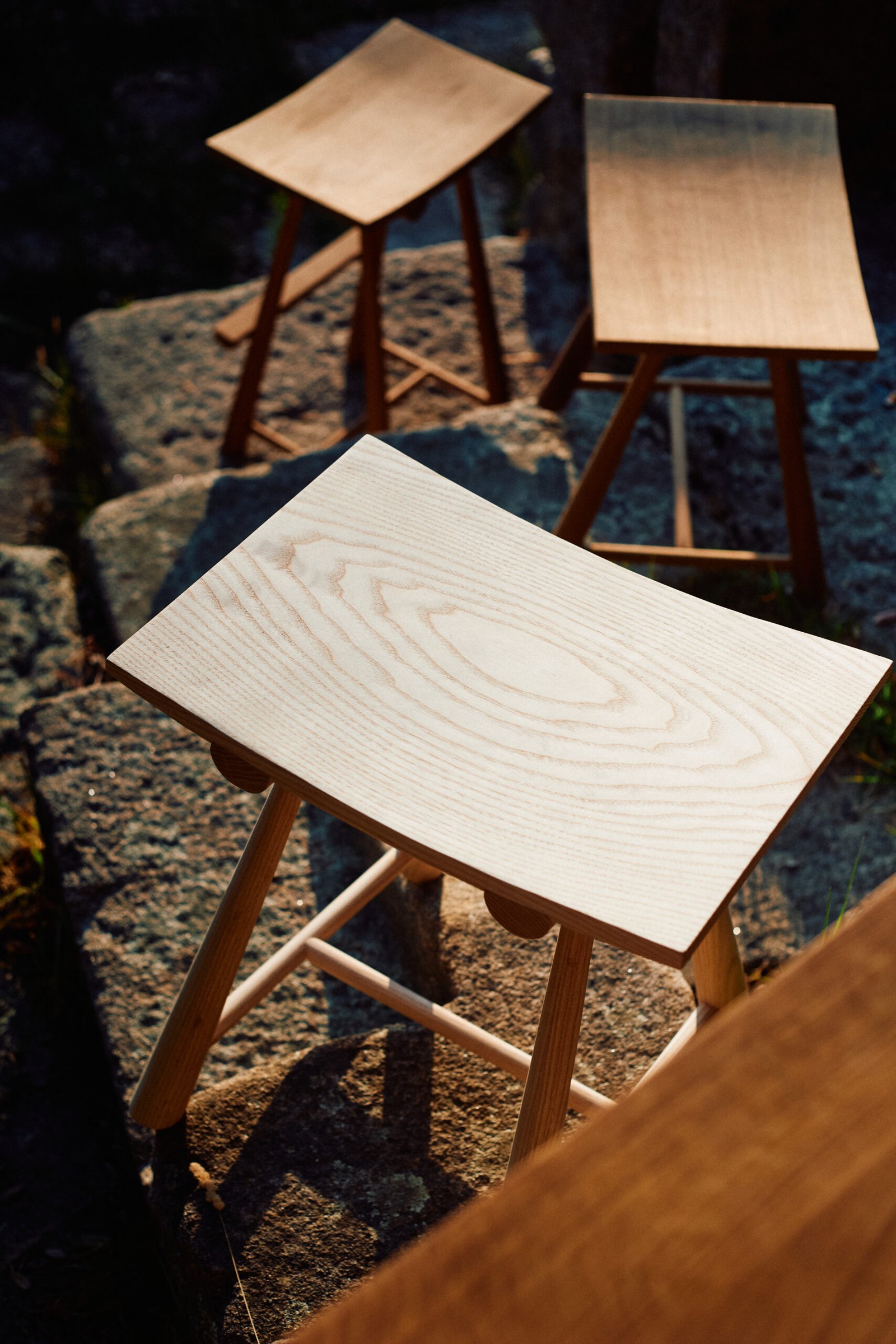Torii collection
by paau
Oct 02, 2025
The Torii Collection by PAAU treats seating as a quiet threshold between movement and calm. Its starting point is the archetypal Torii gate, a symbol of passage that turns a simple pause into a small ritual. The pieces speak softly but with intent, inviting a moment of arrival rather than mere rest, an ethos the studio also articulates in its launch material for the collection.
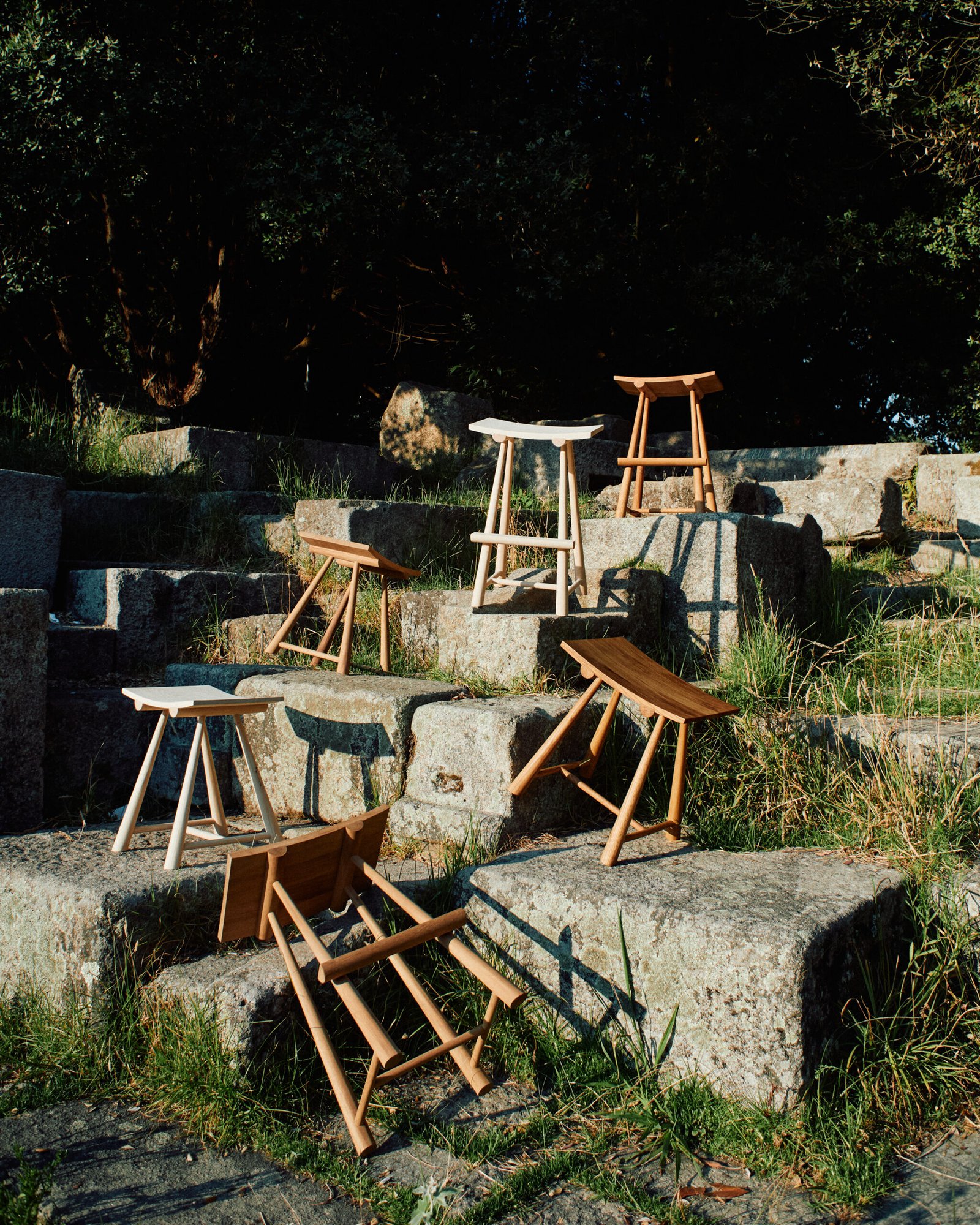
At its core the collection comprises a stool and a high stool, each handmade to order. The form is reduced and precise, guided by traditional joinery that favors clarity over spectacle and aims for timeless use rather than seasonality. Surfaces are shaped to welcome the body, while the base maintains a grounded posture that keeps the silhouette stable and serene. This balance of embrace and structure defines the collection’s character and aligns with PAAU’s promise that the pieces will age with dignity, gaining depth without losing integrity.
Material choices are deliberate. PAAU works with FSC-certified Portuguese oak, ash and kambala, selecting timbers whose grain carries subtle variation from piece to piece. Dimensions are calibrated to everyday life, with the stool at 45 cm in height and the barstool at 75 cm, both with a 32 cm seat. These numbers sound technical but they read as comfort in practice, placing the sitter exactly where posture, proportion and use meet. The result is furniture that feels considered before it feels designed.
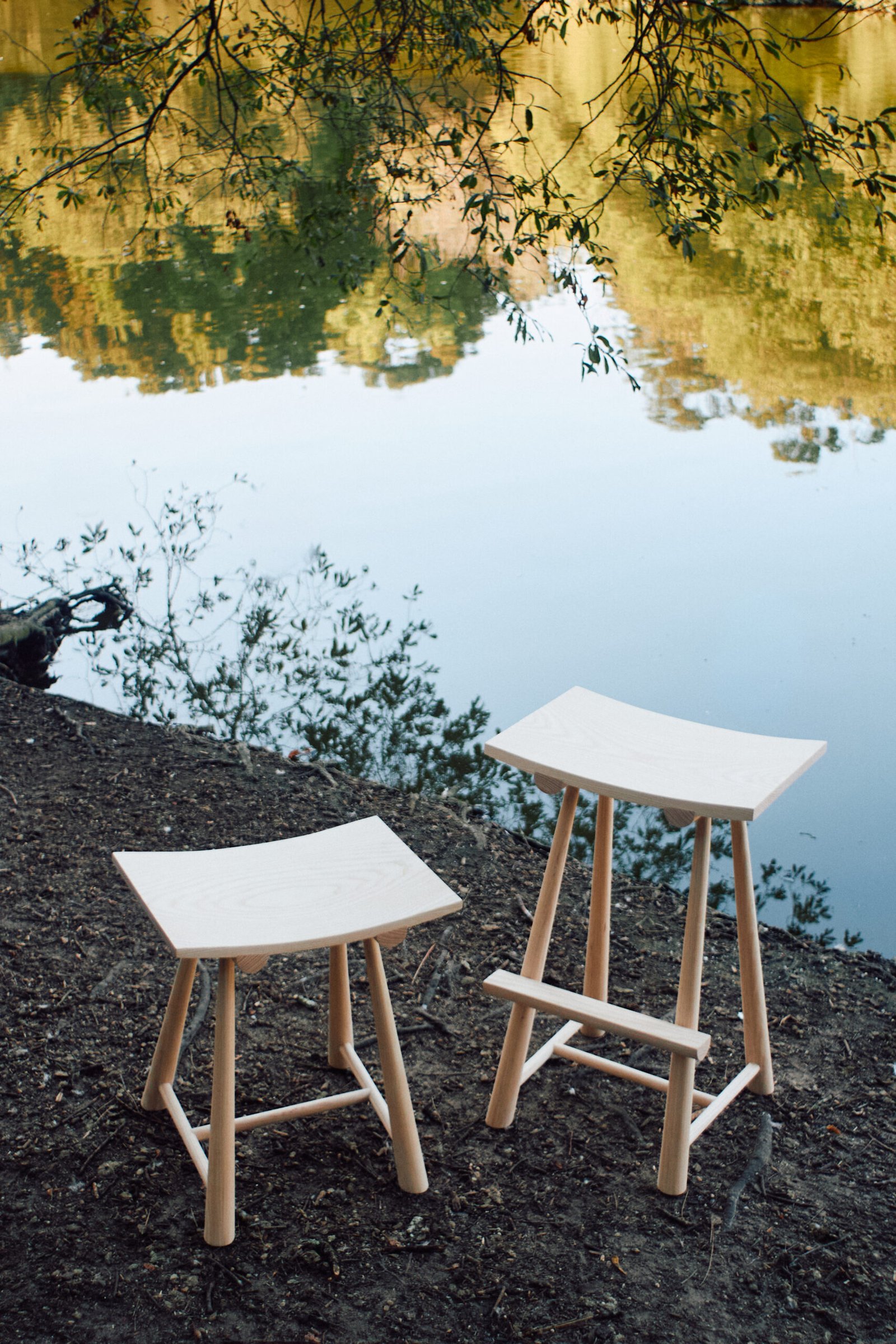
The craft philosophy behind Torii is anchored in Portugal. PAAU describes the work as made by hand in the country, guided by traditional techniques and a mission to source responsibly. The studio frames this as a commitment to longevity and to the dignity of materials, trusting joinery and honest construction to do the heavy lifting aesthetically as well as structurally. That stance is not rhetoric. It underpins how the pieces are built and why they are meant to stay in use rather than cycle out.
Location matters in this story. PAAU lists its address in Monte Abraão, near Lisbon, a detail that situates the collection within a local network of material suppliers and craft. Knowing where the furniture comes from helps the narrative of care make sense. It is not just about a form inspired by Japan. It is about a Portuguese maker building a clear idea with regional resources and a tight circle of collaborators.
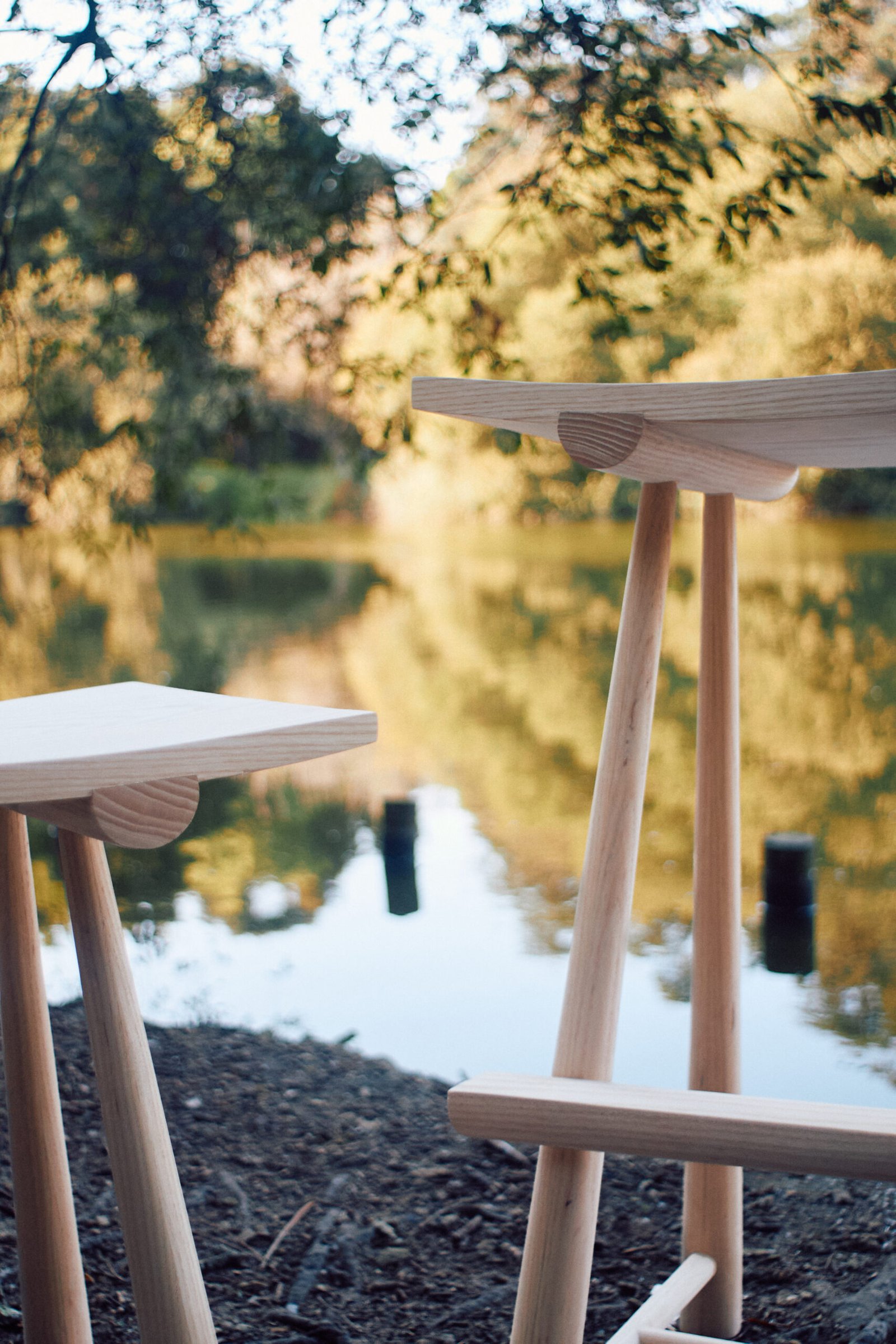
That cultural conversation is present in the design language. PAAU describes the joinery and approach as a meeting of Eastern tradition with Northern utility, and the pieces read that way. There is a reverence for the essential line, for the interval between parts, and for how light lands on a curve. At the same time the stools are resolutely functional, easy to place, easy to live with, and built to take the small frictions of daily use. The influence map becomes a working method rather than a mood board.
Behind the label stands a Lisbon-based founder who frames the practice as an ongoing search for harmony and ritual in contemporary furniture. That perspective helps explain why Torii looks so calm and so purposeful at once. It is not nostalgia. It is a present-tense reading of craft that trusts good wood, clear structure and human touch to carry meaning.
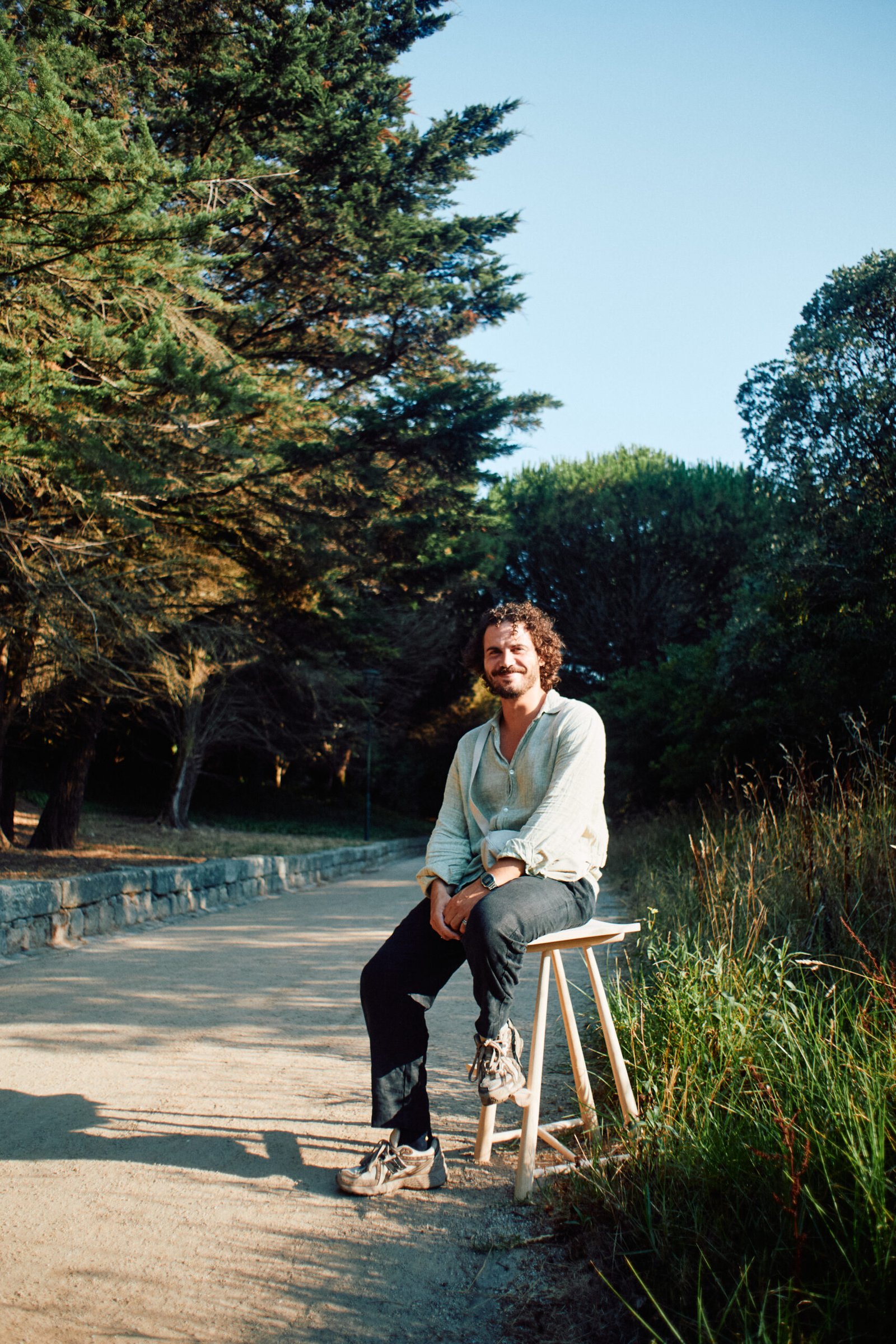
Even the visuals around the launch underline this sensibility. Photography by Júlio Lobo places the stools in Portuguese landscapes, letting natural light, water and stone echo the collection’s balance of stability and flow. The images do not oversell. They simply show how the pieces hold their own in environments that change by the hour. That is a fair metaphor for what the collection aims to do indoors as well.
Torii is more than a shape borrowed from an icon. It is a method of working that refines essentials until only the necessary remains. In that reduction the pieces find their voice. They sit quietly. They ask little. They give back presence, which is exactly what good furniture should do.
